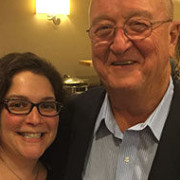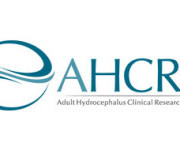Senate Demonstrates Support for Continued Research for Veterans Living with Hydrocephalus
 The hydrocephalus community claimed a big victory on Capitol Hill this week, thanks in large part to your advocacy efforts! Together, we helped ensure Congress did not restrict medical research for veterans living with hydrocephalus or normal pressure hydrocephalus.
The hydrocephalus community claimed a big victory on Capitol Hill this week, thanks in large part to your advocacy efforts! Together, we helped ensure Congress did not restrict medical research for veterans living with hydrocephalus or normal pressure hydrocephalus.
The question of whether or not to continue this research came up as part of a debate in the Senate on Tuesday regarding defense-related programs. At issue was the Congressionally Directed Medical Research Program (CDMRP), which provides funding to researchers working to improve the health of active duty service members, veterans, and their families. Several years ago, hydrocephalus advocates were able to convince Congress to add hydrocephalus to the list of conditions to be researched. This inclusion paves the way for further research to come up with new ways to support veterans living with acquired hydrocephalus and NPH.
The program was threatened this week, however, when the Senate considered legislation to continue to authorize Department of Defense-related programs. The bill included language that would have restricted the scope of the CDMRP’s research. Specifically, it would have required the CDMRP to focus on the military health of active duty service members, as opposed to veterans or military families. It also would have imposed stricter oversight guidelines for grant applications that could have made the process of securing research funding more cumbersome and time-consuming.
Spearheaded by Senator Dick Durbin (D-IL), a coalition of senators offered an amendment to protect the CDMRP’s ability to conduct research that would benefit both active service military and veterans. After calls, e-mails and social media posts from a variety of different groups, including the Hydrocephalus Association, Senators passed the proposal to protect medical research for veterans by a vote of 66-32. The strong bipartisan support means that Department of Defense can continue to conduct research to support veterans living with hydrocephalus and NPH. Please take a moment to thank Senators Durbin (D-IL), Murray (D-WA), Cochran (R-MS), Reid (D-NV), Blunt (R-MO), Mikulski (D-MD), Murkowski (R-AK) , Feinstein (D-CA), Casey (D-PA), and Collins (R-ME) for leading the charge on this important issue.
The exciting outcome of this vote is just one more example of how your advocacy efforts can truly make a difference! We asked you to make phone calls to your Senators urging them to support Senator Durbin’s amendment, and they ultimately did. Congress has been supporting medical research and innovation that helps patients with hydrocephalus time and again, and that’s in large part because they’re hearing that you—their constituents—care how they vote on these important issues.
To learn more about HA’s Advocacy program, click here.
To become a grassroots advocate, join HA’s Hydrocephalus Action Network.










